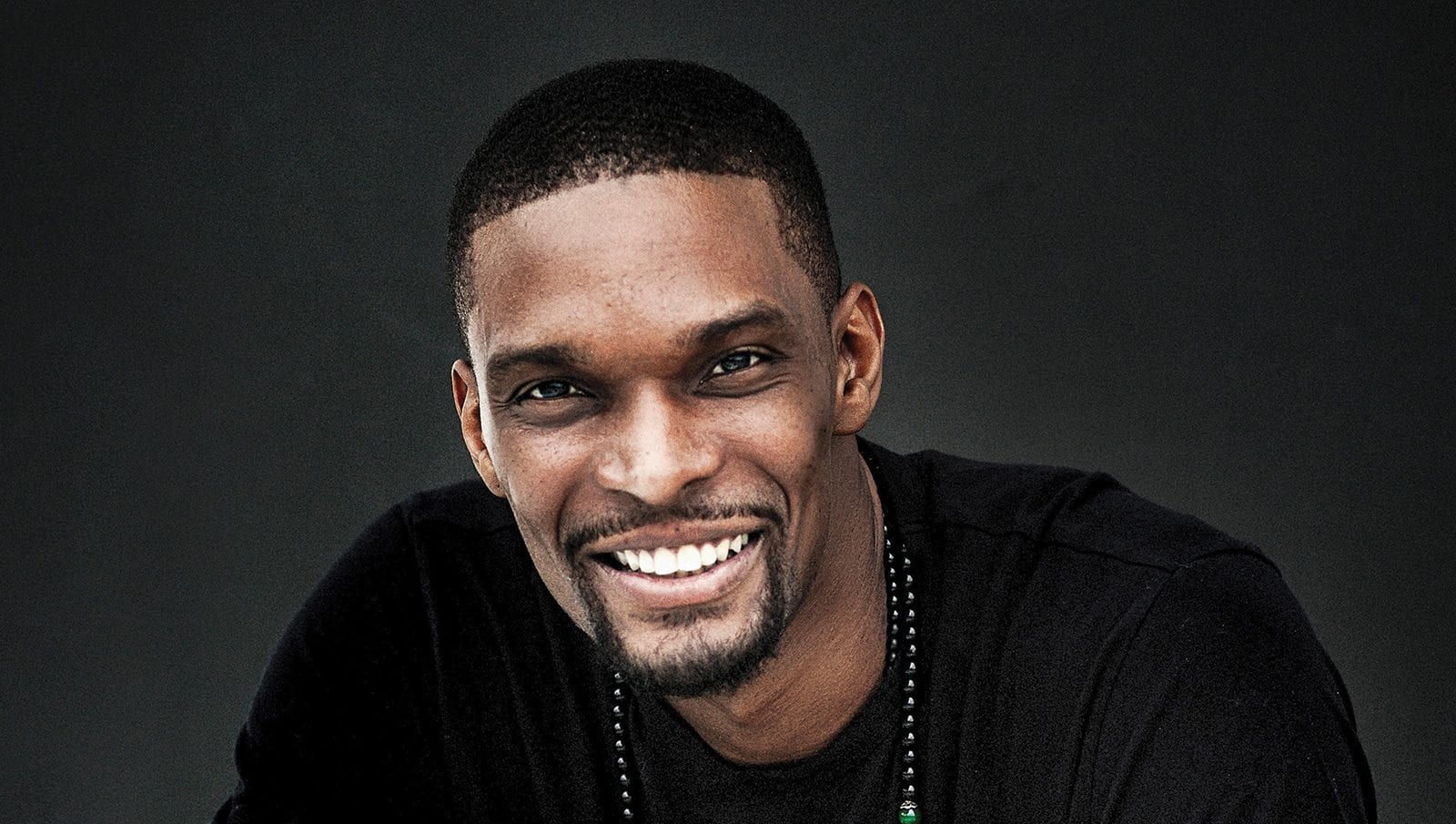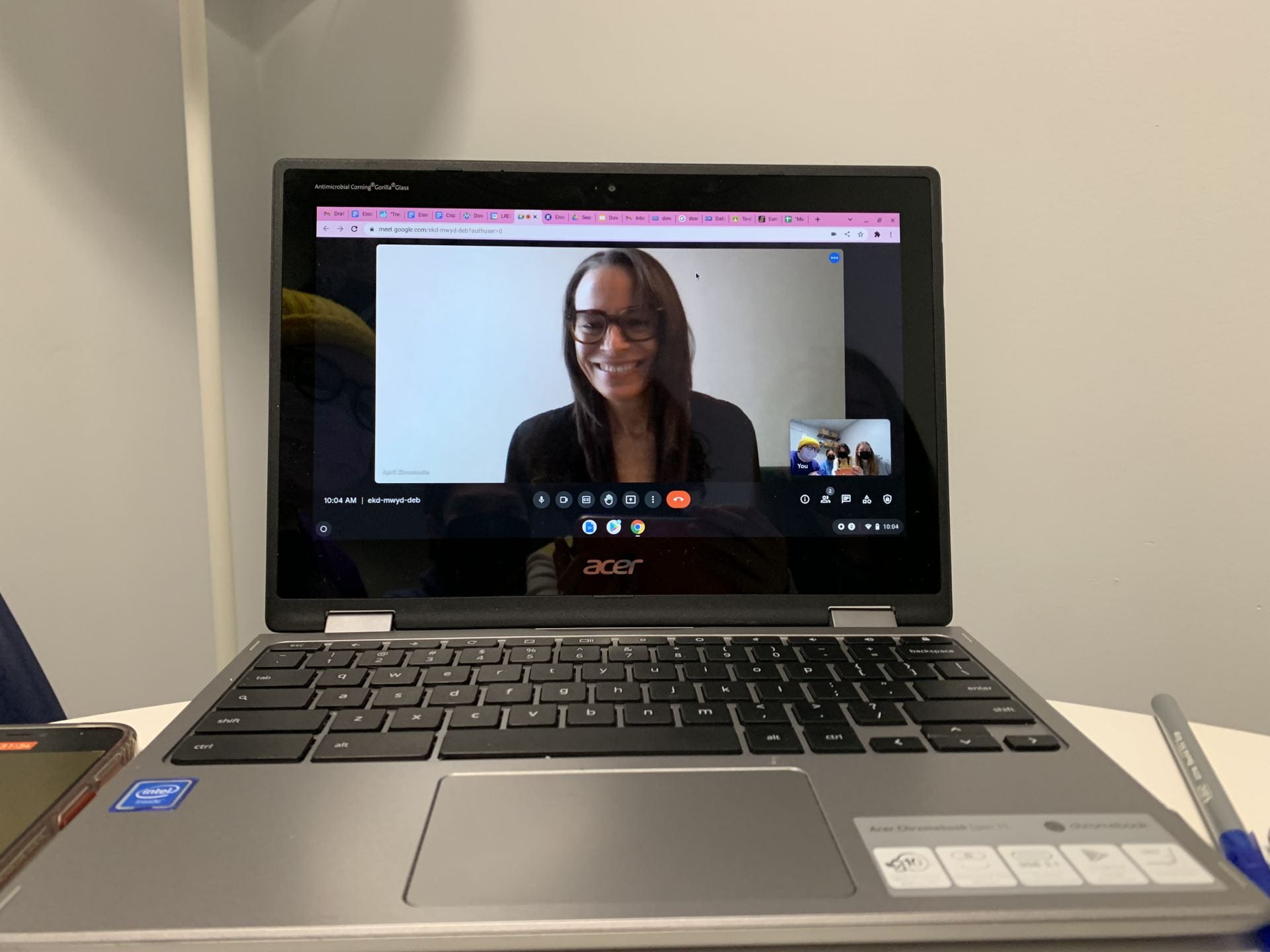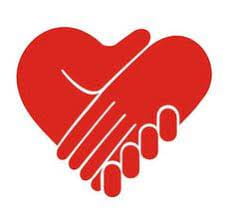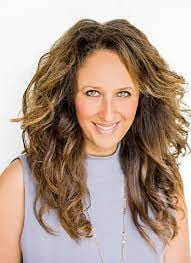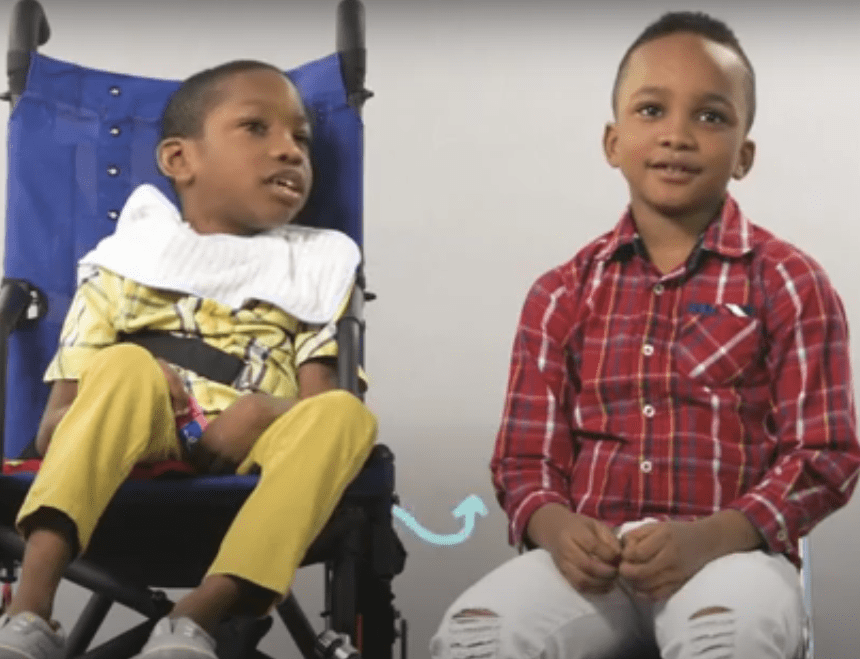- “The foundations of democracy and of our school are built by daily habits of recognizing the rights of those who differ from ourselves.” -- Elisabeth Irwin
Contributors
- An Interview with the High School GSA Members
- Bethany Sousa: A Gender Rights Advocate
- NYU Protest for Gender Affirming Care
- The Fight for Gender-Affirming Care: a Documentary
- A Trip the the Museum of the City of New York
- The People’s March: A Fight Against Donald Trump
- The First Trans Affinity Group
- Paul Silverman: A Queer Therapist
- Ava Dawson: A Trans Ally
- School Nurse Jenna DiMarino Shares Insight on the Abortion Contraversy.
- Bethany Sousa: Legal Warrior for Planned Parenthood
- Interview at Washington Square Park (Raw Oppinions from Random People)
- Interview with Former Planned Parenthood Educator Paola Ferst
- Interview with Former Planned Parenthood Educator Paola Ferst
- Ava Dawson: Health Director at LREI’s View on Reproductive Rights
- How Microplastics Can Affect Everything Around Us – Fieldwork to NYC Aquarium
- NYC Pier Beach Cleanup
- Interview With Daivd – How Microplastics Affect Our Planet
- How Many People In NYC Know About Composting?
- A Marine Biologists Perspective On Microplastics
- Microplastics: How it Affects Animals and Humans
- Digging Deep Into The Dangers of Microplastics
- Personal Stories From the High School GSA
- NYU Protest For Gender Affirming Care
- Bethany Sousa: A Health Care Advocate
- The Fight For Gender-Affirming Health Care Documentary
- The People’s March: A Fight Against Donald Trump
- The First Trans Affinity Group
- Paul Silverman: A Queer Therapist
- Ava Dawson: A Trans Ally
Category Archives: 2021-2022
Interview with Donna Dees; founder of Millions Moms March.
Last week, on January 17th we interviewed Donna Dee, the founder of Million Moms March; one of the largest protests against gun violence in [...]
Interview with Coach Macky
My group interviewed Coach Macky on Thursday, January nineteenth, 2023. Coach Macky is the founder of a non-profit organization called Stead [...]
The Social Dilemma Documentary Reflection
The Social Dilemma is a documentary which came out in 2020 and it is all about exposing the truth about social media and why it isn't good f [...]
How covid affects food insecurity
I watched the documentary "Starved." This was about a variety of food-related issues, particularly in Pennsylvania. This was about how peopl [...]
Covid & Food
On Wednesday, April 20 my group watched a documentary about the issue of food insecurity in Pennsylvania. The video was made by WQED Pittsbu [...]
Speaking With Coach Luis
On Thursday, the 21st of April we interviewed our 5/6th grade PE teacher, Luis Hernandez. He has experience in female sports due to him bein [...]
The Coach Coaches us on Gender Recognition in Sports
We interviewed our 5/6th grade PE teacher, Luis Hernandez. He has experience in female sports due to him being a coach of a few middle schoo [...]
Visit to the USS Growler Cold War Nuclear Missile Submarine.
On Friday, April 9, our group had the opportunity to visit the USS Growler Submarine Museum. The USS Growler was a nuclear missile submarine [...]
Even Small Changes Are Impactful
We spoke with Alex Wolfe, from the Humane League. Their mission is to end the abuse of animals raised for food. She believes an issue with a [...]
A Sewage Solution!
We met with two tour guides from the Bill Gates Discovery Center. They gave information on a topic that doesn't usually come to mind when yo [...]
Poop, Toilets, and Sanitation!
On Thursday, the 31th of March my group was honored to meet Jennifer Scales. Jennifer Scales is a professional at Discovery Center Gates Fou [...]
“Anonymous”
On Wednesday, the 6th of April our group was able to go to Rodeph Shalom School to see the backpack buddy system. When we went there, we saw [...]
“Crazy About Chocolate, Serious About People”
On Thursday, February 24, our group met with Ayn Riggs, the founder and CEO of Slave Free Chocolate, a company that helps bring awareness to [...]
Getting Rid of Modern-Day Slavery with Lauren Jackson
On Tuesday, February 23, our social justice group spoke with Lauren Jackson of the Walkfree foundation. She is a Research and Policy Officer [...]
Virtual Tour: What to do with all that Poo?
Jennifer led us on a virtual tour of the exhibit "What to do with all that Poo?" at the Gates Foundation Discovery Center. We learned about [...]
Interview With Lauren Jackson
On Tuesday, February 23, our group spoke with Lauren Jackson, the Research and Policy Officer at the Walk Free Foundation. Based in Perth, [...]
Conversion Therapy is Not a Thing of the Past
On March 31st, 2022, my group had the pleasure of interviewing Logan Casey (he/him.) He is a trans and queer man that is the senior policy r [...]
Free Store is coming up
On Friday, April 1st, my group will be zooming with Sara Newman to discuss our Free Store plan. Towards the beginning of the year, my group [...]
Interview with Erin Eichenstein.
My group and I interviewed Erin Eichenstein on her work at marketing for instagram and Facebook. She talked to us about how social media can [...]
The Next Step with Chris Bosh
On Friday, March 4th 2022, Henry, Nazir, and I interviewed a former NBA Hall of Famer and All-Star, Chris Bosh. Chris Bosh had 11 out of his [...]
Making a Change with Mr. Armato
On Friday, February 25th, Henry, Nazir, and I interviewed well known agent, Leonard Armato. Leonard Armato founded Management Plus Enterpris [...]
Getting to Know More about “The Door”
On March 10th, our group was able to meet with Nell Rainy who is a licensed clinical social worker who works with the organization The Door. [...]
How White Supremacy Influences our Relationship with Animals.
I listened to an interesting lecture by Christopher Sebastian McJetters which he gave at the Vevolution Festival. He is a writer journalist, [...]
A Huge Opportunity with Lisa Damour
On March 4th my group and I had a great opportunity to speak with Dr. Lisa Damour. Dr. Damour is a clinical psychologist, author and podcast [...]
Interviewing Lauren Ornelas
The Food Empowerment Project's lauren Ornelas met with us. She launched the Food Empowerment Project in 2007, at a time when this topic was [...]
Interview with Lynn Rusten on Nuclear Disarmament
On Friday, February 18th, my groupmate and I were given the opportunity to talk with and interview Lynn Rusten. Lynn Rusten is currently the [...]
Social Media’s Advertising of Body Image: Interview with Erin Eichenstein
We interveiwed Erin Eichenstein on her work for instagram and facebook marketing. She talked to us about how the advertising on social media [...]
Talking about Social Media with Erin Eichenstein
Today my group and I had an interview with Erin Eichenstein. Ering Eichenstein works in marketing for facebook and instagram. She talked to [...]
Understanding True Family: Interview with April Dinwoodie
On Thursday, February 24, 2022, our social justice group was given the opportunity to meet with April Dinwoodie, who was a former marketing [...]
The Best Experience with Chris Bosh
On Friday March 4th 2022, Nazir, Casey, and I interviewed a former NBA Hall of Famer and All-Star, Chris Bosh. Chris Bosh played in the NBA [...]
Attorney Glen A. Kendall on Sexual Harassment in the Workplace
On March 3rd, our group had the opportunity to meet with Glen Kendall, an attorney practicing in the area of employment law. Employment law [...]
The Paley Center For Media.
My Social Justice group and I went to the Paley Center to learn about body Image and how that concept has been shown on TV over the years. M [...]
“Looking at Immigration Cases” – an Interview with Judge Ana Little
On Wednesday March 1st, our group virtually met with Assistant Chief Immigration Judge Ana Little. She is currently the ACIJ and was promote [...]
How factory farming affects global warming
On February 16, Lucas Supan and I met with Vidisha Rai, an Educational Coordinator from Factory Farming Awareness Coalition (FFAC).
She l [...]
Interview with Glen A. Kendall on an Attorney’s Perspective on Workplace Harassment
My group mates and I met with Glen Kendall on Thursday, March 3rd. He kindly gave us yet another perspective of a lawyer who has had to deal [...]
Changing The Game With H.O.F. Chris Bosh
On Friday, the 4th of March our group was honored to meet with Chris Bosh. Chris Bosh is a 2x NBA champion and 11x All-Star. Chris Bosh has [...]
Speaking with the Source
On Thursday, March 3rd our group interviewed Libi Livant. Libi is an LREI student in 8th grade who my partner and I are good friends with. W [...]
Lauren Jackson:Holding Companies Accountable
On Tuesday, February 23, our group spoke with Lauren Jackson who is the Research and Policy Officer at the Walkfree foundation. The Walkfree [...]
How Women are Percived in Media
On February 18th, me and various peers went to the Paley Center for Media to attend a workshop discussing how women are portrayed in media. [...]
Black in a White Family: Interview with April Dinwoodie
On Thursday, Feb 24, 2022, Our group: Child Welfare, Foster Care, and Adoption, interviewed April Dinwoodie (JuneinApril) about her experien [...]
Interview with Lynn Rusten
On Friday, the 18th of February, my group and I were ecstatic to talk with Lynn Rusten. Lynn Rusten currently holds the position of Vice Pre [...]
Foster Care to Adoption with April Dinwoodie
On February 24 2022 we had the honor of meeting with April Dinwoodie. This person is an activist. She has her own podcast and is an influenc [...]
Women in Media Through the Ages
On Friday, the 18th of February, my social justice team and I accompanied two other groups to the Paley Center for Media, where we met Rebec [...]
Interviewing Gloria Allred About Sexual Harassment and Assault
On February 21, our group had the honor to meet with the legendary Gloria Allred. She is an attorney known for taking high profile cases rel [...]
Interview with Gloria Allred on Sexual Assault
On Monday, February 21, my group mates and had the honor of meeting with Feminist and Attorney Gloria Allred, who has a long history of comb [...]
Learning About Women In The Media
Body image and Social media, Sexual Harassment, and Abortion laws groups all went to the Paley Center for media to take one of the classes t [...]
Exposing Bill Cosby: Interview with Gloria Allred
On Monday, February 21st, our group had the honor of interviewing Gloria Allred. Gloria Allred is an attorney known for the large part for t [...]
Interview with Ayn Riggs:Exposing Chocolate Companies and Learning About Exploitation
On February 24th, our group met with Ayn Riggs the Founder and Director of Slave Free Chocolate. Slave Free Chocolate brings awareness to la [...]
The Evolution of Women in the Media
On February 18th, my group and several others had the opportunity to meet with Rebecca at the Paley Center for Media for a workshop on women [...]
Interview With Ayn Riggs
On February 24, the workers rights group interviewed Ayn Riggs, the Director of Slave Free Chocolate. Slave Free Chocolate is a grassroots o [...]
“Born in June, Raised in April” -Interview with April Dinwoodie
On Thursday, February 24, 2022, our social justice group was honored to meet with April Dinwoodie, a former marketing executive who now work [...]
The Effort to Slow Factory Farms
On February 9, 2022, me and Henry Hutchins met with Joel Remland, a former faculty member of LREI. Joel has been a vegan since he was a fres [...]
The Second Step with Leonard Armato
On Friday February 25th, Nazir, Casey, and I interviewed Leonard Armato. Leonard Armato is currently the founder of Management plus Enterpri [...]
“Students VS ICE” – An Interview with Razeen Zaman
On Wednesday February 16th, our group had the pleasure of meeting with Razeen Zaman, the head of the NYU Immigration Defense Initiative, (NY [...]
Breaking Barriers with Leonard Armato
On Friday, the 25th of February my group was honored to meet with Leonard Armato. Leonard Armato, a sports agent, and entrepreneur is most k [...]
Stereotypes of Men in Jail
On Friday 25th we interviewed Ross Macdonald. He works as the Chief Medical Officer for Nyc public hospitals. He was seen first hand what it [...]
Help The Farmers (Interview With Ayn Riggs)
On Thursday the 24 of February our group was able to meet with Ayn Riggs. Ayn has worked with forced labor in chocolate for over 10 years. A [...]
Interview With Lauren Jackson
On Wednesday the 23rd of February our group was able to meet with Lauren Jackson. Lauren is a member of the Walkfree Foundation which is bas [...]
Women in the Media
Last week my group and a few other groups and I went to the Paley Center to hear about women in the media. We watched clips from old shows, [...]
The Perception of Women in Media Throughout the Years
On February 18th, me and several other classmates had the pleasure of going to the Paley Center for Media for a workshop on several issues r [...]
Tour of a Sexual and Reproductive Healthcare Facility with an Abortion Provider
On Monday, February 14th, our group had the excellent oppurtunity of being able to tour a sexual and reproductive healthcare facility with a [...]
“We could have a billionaire tax and some of their money could support homelessness”
On February 10th, our group interviewed Judith Mack about her work with Open Hearts. Judith works at LREI as a learning specialist meaning t [...]
Class at the Paley Center for Media
Body image and Social media, Sexual Harassment, and Abortion laws groups all went to the Paley Center for media to take one of the classes t [...]
Adoption: How it Happens
On February 10 2022 we had the honor of meeting with Jenny and Keven Samuelson about their experience with adoption and the trials and tribu [...]
Foster Care to Adoption
On February 9th, 2022 we met with Alessandra brunialti and Paul yager. These people were important to meet with because they fostered and ad [...]
Nicole McVinua speaks about her work with Urban Pathways
Our group interviewed Nicole McVinua from Urban Pathways on January 31st. She is the Director of Policies at Urban Pathways and has been dev [...]
Gain Off of Immigrant’s Backs – An Interview With David G. Gutierrez
On Wednesday Febuary 16th, our group had the pleasure of meeting with David G. Gutierrez. Gutierrez is a UCSD historian and professor that s [...]
Interview With Lauren Ornelas
We met with lauren Ornelas from The Food Empowerment Project. She founded the Food Empowerment Project in 2007 when this issue was much less [...]
Unfair Sentences In the Justice System
On Februrary 4th, we has the pleasure of meeting with Sophia Henager. Ms Henager is a Law Fellow from the Equal Justice Initiative. She has [...]
Adoption; The Step by Step Process – Interview with Jenny and Kevin Samuelson
On Thursday, February 10th, our group interviewed Jenny Kevin Samuelson. We talked about their adoption process, and their experiences adopt [...]
Not Being Able to Help: Interview with Meredith Dank
On Thursday, the 10th of February, our social justice group interviewed Meredith Dank online. Meredith Dank is a consultant in the Urban Ins [...]
The Cycle of Factory Farms
On Wednesday, February 16, me and Henry Hutchins met with Vidisha Rai, who is a member of the FFAC (Factory Farming Awareness Coalition.
[...]
Allie and Zoe’s Journey to Kevin and Jenny
After learning that one of our fellow classmates, Allie Samuelson, was adopted we asked if we could reach out to her parents to ask about he [...]
Tour of a reproductive health facility
On Monday Libi and I took a tour of a sexual and reproductive health facility. We saw operating rooms, procedure rooms, recovery rooms, meet [...]
“Imagine there being no life under waves”
On Feb 17, 2022, Bayo, Atticus and I met with lauren Ornelas from the Food Empowerment Project. lauren is the founder of The Food Empowermen [...]
“Treat people how you want to be treated” -Judith Mack
On Thursday, February 10th, our group was able to meet with Judith Mack. Judith is a learning specialist at LREI middle school. Surprisingly [...]
The Cruel Approach to Mental Health In American Prisons
Last Friday, February 11, our Social Justice group had the chance to speak with Jacob Hutt. A legal aid attorney that works in the Prison La [...]
Why you should worry about the US prison overcrowding problem – Interview with Alison Hardy
On Friday, February 11, my group and I had the wonderful opportunity to talk to Alison Hardy who works at the Prison Law Organization. This [...]
“The system is set up to undermine mental health”
Alison Hardy works at prison law as a senior attorney and fights for changes to death row inmates with mental health illnesses. During the i [...]
Prison Inequality
On Monday, Februrary 14, we had the pleasure of meeting with Jacob Hutt from the Prison Law Office. Mr. Hutt is a Staff Attorney who joined [...]
Mental Health Issues Within The Prison System
On Tuesday, February 15, we were honored to have a nice chat with Alison Hardy from the Prison Law Office. She is a Senior Staff Attorney wh [...]
Interview with Daniel Prins on nuclear disarment – United Nations
On Friday, the 11th of February, our group had the opportunity to speak with Daniel Prins. Daniel Prins has worked at the United Nations for [...]
Interview with Meredith
On February 10, the Workers Rights Group interviewed Meredith Dank. She is a Research Professor, and directs the Human Exploitation and Resi [...]
The Personal Experience of Fostering – Interview with Alessandra Brunialti and Paul Yager
On Wednesday, February 9th, We met with Alessandra Brunialti, and Paul Yager, who are LREI parents at the school. We had an in-depth convers [...]
Sexual Harassment and Assault presentation
My group and I presented our slideshow on the topic of sexual harassment and assault (on the street and in the workplace) to the entire grad [...]
Interview with Meredith Dank: Human Trafficking Around the World
On Thursday, February 10th our group met with Meredith Dank. Meredith is a research professor at NYU, she specializes in commercial sex econ [...]
Interview with Ms.Israel
We met with Felisa Israel, who worked as the entertainment manager for the Phoenix Mercury for more than twenty years, a successful entrepre [...]
“Just Because Someone is Unable to Have Children Does Not Mean that They Cannot Start a Family” -Interview with Jenny...
On Thursday, February 10, 2022, our social justice group was excited to meet with Jenny and Kevin Samuelson, parents of Allie Samuelson, an [...]
“Mass incarceration is a billion dollar business”
We interviewed Casilda Roper-Simpson, a Law Judge that works mostly on criminal cases. She has worked on public assistance, Medicaid, food s [...]
“Prisons care about the short term solution, not the long term”
We interviewed Jacob Hutt. He works at Prison Law as a attorney. He helps people who incarcerated with mental health problems and people wit [...]
How factory farming affects global warming
On February 9, we met with Joel Remland, who has been on a vegan diet since he was a freshman in college.
Joel told us about the econom [...]
“What’s the real problem?” A conversation with Felisa Israel
On February 11 2022, Nazir, Casey, and I interviewed Felisa Israel who is a part founder of the WNBA team, Phoenix Mercury. We were very for [...]
Taking Big Steps Towards Fixing The Gender Pay Gap in Sports With Felisa Israel
On Friday, February 11th, our group had the privilege of meeting Felisa Israel. Felisa Isreal was a founding member of the WNBA's Phoenix Me [...]
“We can make a ripple effect of positivity.”
On February 10th, we were able to meet with Judith Mack. Judith is a learning specialist at LREI middle school. Unexpectedly to us, Judith i [...]
Making Families and Dreams Come true
On Wednesday, February 9, 2022, our social justice group had the opportunity to meet with two amazing LREI parents, Alessandra Brunialti and [...]
Cleaning Up Labor Issues
On Thursday, the 10th of February Our group was able to interview Meredith Dank, Meredith is a consultant in the Justice Policy Center at th [...]
Being Homeless isn’t a Crime
On Thursday, the 10th of February my group and I got the chance to meet with Judith Mack. She works at LREI, through the pandemic Judith hel [...]
Knocking on NAC’s Door
On Monday, February 7th, 2022, our Social Justice group met with some amazing staff at New Alternatives for Children (NAC). The people we in [...]
“Every Child and Parent Has Their Own Story” -An Interview with Alessandra Brunialti and Paul Yager
On Wednesday, February 9, 2022, our group was honored to meet with Alessandra Brunialti and Paul Yager, parents of Carmen Yager, an 8th grad [...]



































